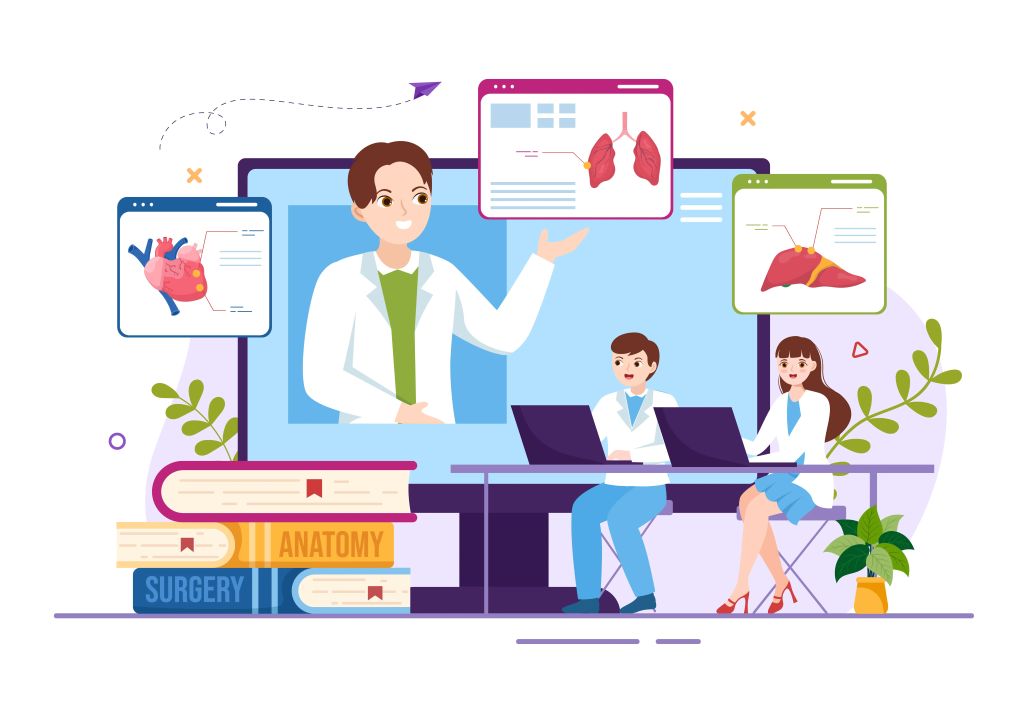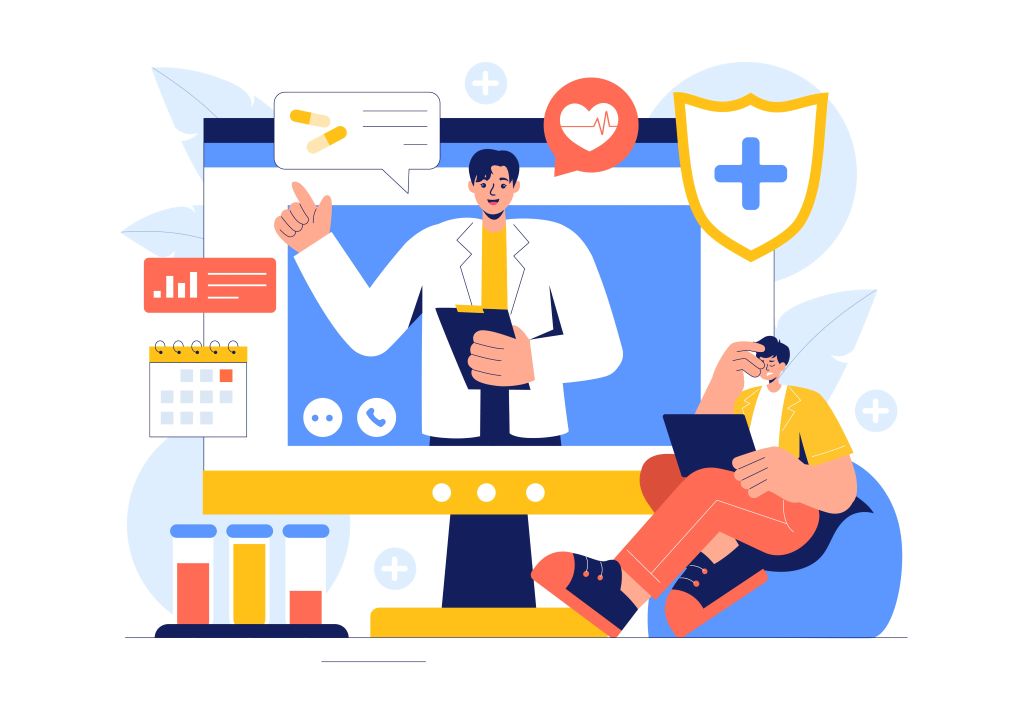Healthcare organizations face unique training challenges that require specialized solutions. From maintaining regulatory compliance to ensuring patient safety, healthcare professionals need continuous education that adapts to their demanding schedules and critical responsibilities. A well-designed healthcare LMS can transform how medical institutions deliver training, but choosing the right platform requires understanding which features truly matter.
The global healthcare learning management system market size was valued at US$ 1,821.8 million in 2024 and is estimated to grow at a compound annual growth rate (CAGR) of 20.6% from 2024 to 2030. This explosive growth reflects the increasing recognition that effective digital learning platforms are essential for healthcare excellence. Platforms like Calibr are leading this transformation by offering specialized healthcare training solutions that address these unique industry requirements.
Explore more by visiting our website or contact us for more details

LMS Features for Enhanced Healthcare Training
Here are the top LMS features that make healthcare training effective and efficient
Healthcare organizations face unique training challenges that require specialized digital solutions. A healthcare LMS is more than a compliance tool—it’s a central hub for ongoing professional development, skills enhancement, and patient safety. From tracking certifications to delivering personalized learning, the right LMS features ensure staff stay competent, confident, and compliant.
Platforms like Calibr provide a comprehensive LMS for healthcare organisations and hospitals, offering advanced capabilities such as AI-powered personalized learning, microlearning modules, gamification, and real-time analytics. With these tools, healthcare professionals can access training anytime, anywhere, while administrators gain full visibility into learning progress and regulatory compliance.
Choosing the right LMS for healthcare training or healthcare training solutions can transform how medical institutions onboard staff, maintain certifications, and improve patient outcomes. In this blog, we explore the top LMS features list that make platforms like Calibr the best LMS for healthcare and the preferred choice for modern healthcare organizations.
1. Robust Compliance Tracking and Management
Healthcare organizations operate under strict regulatory frameworks, making compliance tracking the most critical feature of any healthcare LMS. Effective platforms must align with standards like HIPAA, GDPR, OSHA, and other healthcare-specific regulations, ensuring that all training meets industry requirements and reduces organizational risk.
Advanced LMS features in platforms like Calibr include automated deadline tracking, certification renewal reminders, and comprehensive audit trails. The system tracks each employee's compliance requirements, automatically assigns courses, and ensures timely completion—eliminating manual follow-ups and errors.
For hospitals, clinics, and pharmaceutical companies, LMS pharma healthcare training compliance tools make managing certifications and regulatory training seamless and audit-ready. By centralizing compliance data, healthcare organizations can ensure consistent training across multiple locations and roles, strengthening both patient safety and operational accountability.
2. AI-Powered Personalized Learning Paths
Healthcare professionals have diverse educational backgrounds, specialties, and schedules, so a one-size-fits-all approach to training doesn’t work. The system identifies LMS healthcare skills gaps, recommends targeted modules, and continuously adapts based on learner progress and performance.
This LMS for healthcare training ensures that nurses, doctors, technicians, and administrative staff focus only on content relevant to their roles. Calibr's features such as mobile access and microlearning allow staff to complete short, high-impact lessons anytime—during breaks, between shifts, or remotely.
By combining adaptive AI recommendations with engaging content, Calibr's LMS features like personalized learning paths maximize retention, reduce training time, and empower healthcare teams to perform at their best while maintaining compliance.
3. Comprehensive Assessment and Certification Management
Assessments are a cornerstone of healthcare education, as skills and knowledge directly impact patient outcomes. A robust healthcare LMS supports multiple assessment types—from quizzes and interactive case studies to scenario-based simulations that mirror real clinical situations.
Calibr’s LMS for healthcare organisations automates the entire certification process, from initial assessments to renewal tracking. Administrators can monitor certification status, maintain detailed records, and generate instant compliance reports, ensuring that staff remain up-to-date with mandatory training.
Integrating healthcare training solutions into assessments allows organizations to identify learning gaps, provide targeted refreshers, and ensure staff competency across departments. By combining assessment data with analytics, healthcare teams can continuously improve skills, reduce errors, and maintain high standards of care—making training more effective, scalable, and measurable.
4. Real-Time Analytics and Reporting
Once training is deployed, healthcare administrators need full visibility into learner progress, compliance, and training effectiveness. A healthcare LMS like Calibr offers advanced LMS features such as real-time analytics and reporting, which track learner completion, knowledge retention, and certification status across departments and locations.
With LMS for healthcare training, administrators can monitor performance metrics in real time, identify skill gaps, and evaluate the effectiveness of learning programs. Insights from these dashboards highlight which staff require refresher modules or additional support, ensuring that critical LMS healthcare skills are continuously developed.
These capabilities allow LMS for healthcare organisations to make data-driven decisions, optimize training content, and measure the direct impact of learning on patient care quality and operational efficiency. By integrating analytics into everyday workflows, healthcare leaders can improve outcomes, maintain regulatory compliance, and maximize the return on investment in training initiatives.
5. Seamless Integration and SCORM Compliance
Healthcare organizations rely on multiple digital systems, including electronic health records (EHR), HR software, and hospital management platforms. The best LMS for healthcare must integrate seamlessly with these tools to support cohesive workflows and reduce administrative burden.
Calibr, as a comprehensive healthcare LMS, provides full SCORM compliance, robust API support, and Single Sign-On (SSO) capabilities, ensuring smooth interoperability across systems. This enables healthcare teams to access training modules directly within their existing platforms, eliminating login barriers and improving engagement.
By connecting all LMS features—from compliance tracking and AI-powered personalized learning to assessment management and reporting—organizations can create a unified, efficient training ecosystem. Healthcare training solutions become accessible anytime, anywhere, across multiple locations and devices. This ensures that LMS for healthcare training is scalable, consistent, and user-friendly for staff at every level, while LMS for healthcare organisations can maintain high standards of care, operational efficiency, and regulatory compliance.
Best LMS for Healthcare Organizations
When evaluating healthcare LMS options, organizations should prioritize platforms that understand the unique challenges of medical education. The ideal solution combines robust compliance management with innovative features that enhance learning effectiveness and user engagement.
Security features must meet healthcare-specific requirements, including data encryption, access controls, and audit logging that satisfy HIPAA and other regulatory standards. In healthcare, securing patient data isn't just about compliance—it's about maintaining trust and ensuring regulatory compliance becomes a foundational requirement for any healthcare technology platform.
Scalability becomes crucial as healthcare organizations grow and training requirements evolve. The LMS should accommodate increasing user numbers, expanding content libraries, and additional compliance requirements without performance degradation. Cloud-based solutions often provide the flexibility and scalability that growing healthcare organizations require.
Customer support and training services are essential for successful LMS implementation in healthcare settings. The platform provider should offer specialized healthcare expertise, implementation assistance, and ongoing support that understands the unique challenges of medical education and compliance requirements.
For more information on the overall context and implementation of a healthcare LMS, read our full blog on LMS for Healthcare: A Complete Guide.
LMS for Healthcare Training Excellence

The future of healthcare education relies on sophisticated learning management systems that combine compliance rigor with innovative educational approaches. The global healthcare e-learning services market size was estimated at USD 11.10 billion in 2024 and is projected to grow at a CAGR of 14.58% from 2025 to 2030, reflecting the continued investment in digital healthcare education solutions.
Selecting the right healthcare LMS requires careful evaluation of these five critical features: compliance tracking, personalized learning, assessment management, analytics capabilities, and system integration. Organizations that prioritize these elements will be better positioned to deliver effective training programs that improve patient outcomes and maintain regulatory compliance.
The investment in a comprehensive healthcare LMS pays dividends through improved training efficiency, reduced compliance risks, and enhanced patient care quality. As healthcare continues to evolve, organizations with robust learning management systems will be better equipped to adapt to new challenges and maintain excellence in patient care.
Calibr's comprehensive healthcare solutions demonstrate how the right LMS platform can transform healthcare training from a compliance necessity into a strategic advantage that drives organizational success and improved patient outcomes.
Ready to transform your healthcare training?
Sign up for a 14 day free trail or contact us or schedule a demo to get started


